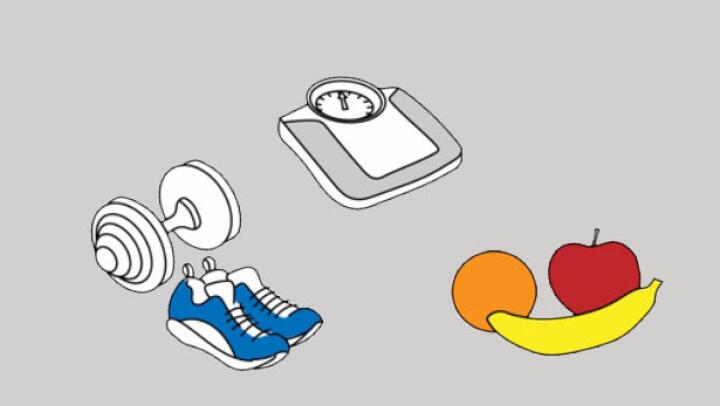8 Mistakes People With Diabetes Make

Medically Reviewed By William C. Lloyd III, MD, FACS
-
 Everyone Makes MistakesWhen you have diabetes, it's important to learn from your mistakes. That can help prevent other health problems, like weight gain and high blood pressure. You can learn from other people's mistakes, too. Read on to discover common pitfalls with diabetes. It could help you avoid them and achieve your treatment goals.
Everyone Makes MistakesWhen you have diabetes, it's important to learn from your mistakes. That can help prevent other health problems, like weight gain and high blood pressure. You can learn from other people's mistakes, too. Read on to discover common pitfalls with diabetes. It could help you avoid them and achieve your treatment goals. -
 Mistake #1: Not Storing Insulin ProperlyKeep insulin as cool as possible, but not frozen. Insulin doesn't work as well if it gets too warm or too cold. If that happens, it will not control your blood sugar levels properly. It should not be stored at room temperature in a kitchen cabinet, desk drawer, or bedside table. Also, keep insulin out of the sun. Instead, keep insulin cool in the refrigerator. While traveling, be sure to keep insulin in a cooler.
Mistake #1: Not Storing Insulin ProperlyKeep insulin as cool as possible, but not frozen. Insulin doesn't work as well if it gets too warm or too cold. If that happens, it will not control your blood sugar levels properly. It should not be stored at room temperature in a kitchen cabinet, desk drawer, or bedside table. Also, keep insulin out of the sun. Instead, keep insulin cool in the refrigerator. While traveling, be sure to keep insulin in a cooler. -
-
 Mistake #2: Not Checking Blood Sugar ProperlyIf you don't check your blood sugar levels the right way, the reading you get could be wrong. Be sure to put the test strip all the way into the glucose meter. Wash your hands before testing. Also, don’t squeeze your finger too hard to get a blood sample. It's a good idea to closely watch while a doctor or nurse uses the meter to test you. Then, copy what they did and try it yourself. Don’t be afraid to ask questions. Getting accurate test results is very important.
Mistake #2: Not Checking Blood Sugar ProperlyIf you don't check your blood sugar levels the right way, the reading you get could be wrong. Be sure to put the test strip all the way into the glucose meter. Wash your hands before testing. Also, don’t squeeze your finger too hard to get a blood sample. It's a good idea to closely watch while a doctor or nurse uses the meter to test you. Then, copy what they did and try it yourself. Don’t be afraid to ask questions. Getting accurate test results is very important. -
 Mistake #3: Not Following Your Insulin RoutineSet a schedule for your insulin injections. Then stick to it. Doing this can keep your blood sugar levels from spiking too high or dropping too low. Different foods will affect your blood sugar as well. Stress, physical activity, and illness also will have an effect. Checking your blood sugar regularly will help you control your condition. You don’t have to figure this out alone. Your doctor can help you set up a schedule that works for you. If you take pills for diabetes, it’s important to take them on schedule every day.
Mistake #3: Not Following Your Insulin RoutineSet a schedule for your insulin injections. Then stick to it. Doing this can keep your blood sugar levels from spiking too high or dropping too low. Different foods will affect your blood sugar as well. Stress, physical activity, and illness also will have an effect. Checking your blood sugar regularly will help you control your condition. You don’t have to figure this out alone. Your doctor can help you set up a schedule that works for you. If you take pills for diabetes, it’s important to take them on schedule every day. -
 Mistake #4: Skipping MealsDon't skip meals. Your blood sugar may drop too low when you do not eat regularly. This is especially true if you’ve already taken your diabetes medicine. Instead of eating one or two big meals, eat several small meals during the day. It’s important to avoid foods high in salt, sugar and fat. Your diet should include lots of fruits and vegetables, beans, whole grains, fish, and lean meats and poultry. Does this seem like a lot to think about? Then talk to your doctor, a nutritionist, or a certified diabetes educator. They can help create a meal plan that is right for you.
Mistake #4: Skipping MealsDon't skip meals. Your blood sugar may drop too low when you do not eat regularly. This is especially true if you’ve already taken your diabetes medicine. Instead of eating one or two big meals, eat several small meals during the day. It’s important to avoid foods high in salt, sugar and fat. Your diet should include lots of fruits and vegetables, beans, whole grains, fish, and lean meats and poultry. Does this seem like a lot to think about? Then talk to your doctor, a nutritionist, or a certified diabetes educator. They can help create a meal plan that is right for you. -
 Mistake #5: Not Exercising RegularlyExercise can help you maintain a healthy weight and feel more energetic. It also helps insulin lower your blood sugar levels. Be active on a regular basis. Then see how your blood sugar responds to exercise. Tell your doctor about what you observe. This helps your doctor know how to adjust your insulin schedule to keep your blood sugar levels steady. If you are active only once in a while, it is harder to predict your insulin needs. A random bout of exercise could cause your blood sugar level to drop too low. So, try to be active for about 30 minutes every day.
Mistake #5: Not Exercising RegularlyExercise can help you maintain a healthy weight and feel more energetic. It also helps insulin lower your blood sugar levels. Be active on a regular basis. Then see how your blood sugar responds to exercise. Tell your doctor about what you observe. This helps your doctor know how to adjust your insulin schedule to keep your blood sugar levels steady. If you are active only once in a while, it is harder to predict your insulin needs. A random bout of exercise could cause your blood sugar level to drop too low. So, try to be active for about 30 minutes every day. -
-
 Mistake #6: Ignoring Your FeetMany people with diabetes have some form of nerve damage. The first sign of this often is numbness, tingling or pain in the feet. These symptoms may be easy to ignore at first, but they could get worse over time. Prevent bad foot problems by checking your feet every day. Look for swelling, cuts or blisters. Moisturize your feet and trim your toenails regularly. It’s also important to keep blood flowing to your feet. You can do that by wiggling your toes and moving your ankles 2 or 3 times a day. Also, don't sit with your legs crossed for a long time.
Mistake #6: Ignoring Your FeetMany people with diabetes have some form of nerve damage. The first sign of this often is numbness, tingling or pain in the feet. These symptoms may be easy to ignore at first, but they could get worse over time. Prevent bad foot problems by checking your feet every day. Look for swelling, cuts or blisters. Moisturize your feet and trim your toenails regularly. It’s also important to keep blood flowing to your feet. You can do that by wiggling your toes and moving your ankles 2 or 3 times a day. Also, don't sit with your legs crossed for a long time. -
 Mistake #7: Not Getting Regular CheckupsDon’t forget to follow up with your doctor on a regular basis. Diabetes can affect many parts of your body. It raises your risk of heart disease, kidney disease, infections, and gum problems. Your doctor may send you to a specialist to treat one or more of these issues. It’s also important to visit an eye doctor at least once a year. People with diabetes are more likely than others to have eye problems.
Mistake #7: Not Getting Regular CheckupsDon’t forget to follow up with your doctor on a regular basis. Diabetes can affect many parts of your body. It raises your risk of heart disease, kidney disease, infections, and gum problems. Your doctor may send you to a specialist to treat one or more of these issues. It’s also important to visit an eye doctor at least once a year. People with diabetes are more likely than others to have eye problems. -
 Mistake #8: Setting Unrealistic Exercise GoalsSet reachable goals. That's especially important if you haven't been active for a while and are starting a new exercise routine. Doing too much too soon can leave you sore and discouraged. You could even get hurt. Set specific goals. Don’t say you're going to walk more. Instead, say you will walk briskly for 10 minutes every day during your lunch break. Remember that losing just 5% to 7% of your body weight can make a difference in how well your body uses insulin—making your diabetes easier to manage.
Mistake #8: Setting Unrealistic Exercise GoalsSet reachable goals. That's especially important if you haven't been active for a while and are starting a new exercise routine. Doing too much too soon can leave you sore and discouraged. You could even get hurt. Set specific goals. Don’t say you're going to walk more. Instead, say you will walk briskly for 10 minutes every day during your lunch break. Remember that losing just 5% to 7% of your body weight can make a difference in how well your body uses insulin—making your diabetes easier to manage.
8 Mistakes People With Diabetes Make











































